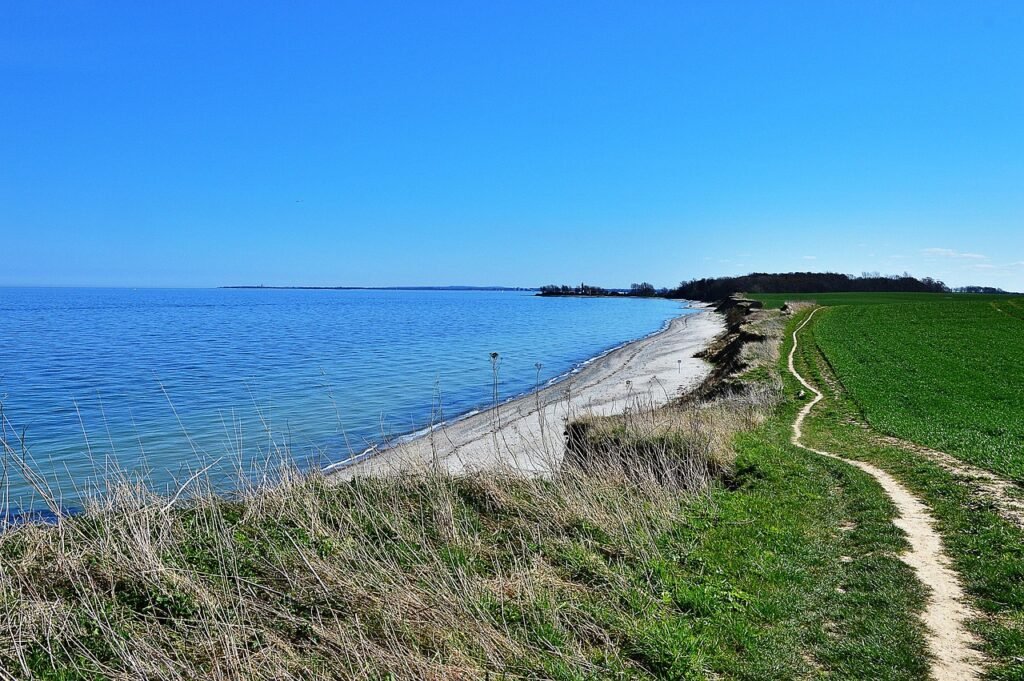Sun-kissed skin, the rhythmic crashing of waves, and the salty tang of the sea air – a trip to the beach offers an unparalleled escape from the everyday. More than just a pretty view, beaches provide a sanctuary for relaxation, recreation, and connection with nature. Whether you’re a seasoned beachcomber or a first-time visitor, understanding the nuances of different beach experiences can help you plan the perfect coastal getaway. This guide will dive deep into the diverse world of beaches, exploring everything from their formation and ecological significance to the best activities and destinations for your next beach adventure.
The Science of Sand and Shorelines
Beach Formation: A Geological Perspective
Beaches are dynamic landscapes constantly shaped by natural forces. Understanding their formation helps appreciate their fragile beauty.
- Erosion: Waves and currents relentlessly erode coastlines, breaking down rocks and cliffs into smaller particles.
- Transportation: These particles, ranging from pebbles to fine sand, are transported by water and wind.
- Deposition: When the energy of the water or wind decreases, these particles are deposited along the shore, creating beaches.
The composition of sand varies greatly depending on the source material. For example, white sand beaches are often composed of quartz, while black sand beaches are typically volcanic in origin. In Hawaii, you can find green sand beaches, colored by the mineral olivine.
The Ecological Importance of Beaches
Beaches aren’t just pretty faces; they’re vital ecosystems that support a diverse array of life.
- Habitat for Wildlife: Beaches provide nesting grounds for sea turtles and shorebirds, as well as habitat for crustaceans and other marine invertebrates.
- Coastal Protection: Beaches act as natural buffers, absorbing wave energy and protecting inland areas from erosion and storm surges.
- Nutrient Cycling: Beaches play a crucial role in cycling nutrients between the land and the sea.
Did you know that horseshoe crabs, often found on beaches, are considered living fossils and their blue blood is used in biomedical research? Protecting these ecosystems is crucial for the health of both the environment and human populations.
Beach Activities and Recreation
Relaxing on the Sand: Sunbathing and Swimming
Perhaps the most popular beach activities, sunbathing and swimming offer a chance to unwind and soak up the sun.
- Sun Safety: Always wear sunscreen with a high SPF, reapply frequently, and seek shade during peak sun hours (10 AM to 4 PM).
- Swimming Conditions: Be aware of rip currents, which are powerful channels of water flowing away from the shore. If caught in a rip current, swim parallel to the shore until you are out of the current.
- Beach Etiquette: Be mindful of others, avoid playing loud music without headphones, and clean up your trash.
Many beaches offer lifeguard services. Always swim in designated areas and follow their instructions. Consider bringing a beach umbrella or tent for added sun protection.
Water Sports: Surfing, Paddleboarding, and Kayaking
For those seeking a more active beach experience, water sports offer a thrilling way to explore the coastline.
- Surfing: From beginner-friendly breaks to challenging reef breaks, beaches around the world offer surfing opportunities for all skill levels. Popular surfing destinations include Hawaii, California, and Australia.
- Paddleboarding: A more relaxed activity, paddleboarding allows you to explore calm waters and enjoy the scenery. Many beaches offer paddleboard rentals and lessons.
- Kayaking: Kayaking is a great way to explore secluded coves and observe marine wildlife. Guided kayak tours are available in many coastal areas.
Before engaging in any water sport, ensure you have the necessary skills and equipment. Consider taking a lesson or renting equipment from a reputable provider. Always wear a life jacket for safety.
Beachcombing and Wildlife Watching
Turn your beach visit into a treasure hunt and connect with the local wildlife.
- Shell Collecting: Look for interesting shells, but be mindful of local regulations regarding shell collecting. Some areas prohibit the removal of shells to protect the ecosystem.
- Tide Pooling: Explore tide pools at low tide to discover a fascinating world of marine creatures, such as starfish, sea anemones, and crabs.
- Bird Watching: Beaches are a haven for shorebirds. Bring binoculars and a field guide to identify different species.
When beachcombing, be respectful of the environment. Avoid disturbing nesting birds or trampling fragile tide pool ecosystems. Remember to leave the beach as you found it, or better!
Choosing the Right Beach for You
Factors to Consider
Selecting the perfect beach depends on your individual preferences and priorities.
- Accessibility: Consider the ease of access to the beach. Is it easily accessible by car, public transportation, or boat?
- Amenities: Does the beach have restrooms, showers, food vendors, and other amenities?
- Crowds: Some beaches are crowded, especially during peak season. If you prefer a more secluded experience, look for less popular beaches.
- Water Quality: Check the water quality reports for the beach to ensure it is safe for swimming.
- Activities: Choose a beach that offers the activities you enjoy, whether it’s swimming, surfing, or simply relaxing on the sand.
Popular Beach Destinations Around the World
From tropical paradises to rugged coastlines, the world is full of amazing beaches.
- Maldives: Known for its pristine white sand beaches, turquoise waters, and luxurious resorts.
- Bora Bora, French Polynesia: A volcanic island surrounded by a stunning lagoon, famous for its overwater bungalows.
- Miami Beach, Florida, USA: A vibrant destination with a lively atmosphere, beautiful beaches, and Art Deco architecture.
- Bondi Beach, Australia: An iconic Australian beach known for its surfing, lifeguards, and laid-back vibe.
- Navagio Beach, Zakynthos, Greece: Famous for the shipwreck that lies on its shore, accessible only by boat.
Research different beach destinations and read reviews before making your choice. Consider the time of year and the weather conditions in your chosen destination.
Responsible Beach Tourism
Minimizing Your Impact
As visitors, it’s our responsibility to protect the beaches we love.
- Reduce, Reuse, Recycle: Pack out all your trash and recycle whenever possible.
- Avoid Single-Use Plastics: Bring your own reusable water bottle, shopping bag, and utensils.
- Respect Wildlife: Observe wildlife from a distance and avoid feeding them.
- Use Reef-Safe Sunscreen: Choose sunscreen that does not contain harmful chemicals like oxybenzone and octinoxate, which can damage coral reefs.
- Support Local Businesses: Patronize local restaurants and shops to support the local economy.
Participating in Beach Cleanups
Volunteering for a beach cleanup is a great way to give back to the community and protect the environment.
- Organize a Cleanup: Gather friends and family and organize your own beach cleanup.
- Join an Existing Cleanup: Many organizations host regular beach cleanups. Check with local environmental groups or community centers for upcoming events.
- Spread Awareness: Encourage others to be mindful of their impact on the beach and to participate in conservation efforts.
Conclusion
Beaches offer a unique blend of natural beauty, recreational opportunities, and ecological significance. By understanding the science behind their formation, appreciating their ecological importance, and practicing responsible tourism, we can ensure that these precious resources are preserved for future generations. Whether you’re seeking relaxation, adventure, or a connection with nature, a trip to the beach can be a truly transformative experience. So, pack your sunscreen, grab your towel, and get ready to explore the wonders of the coast!

